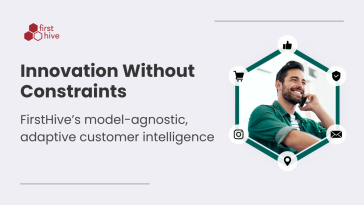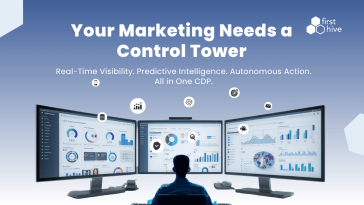Marketing analytics is a game-changer in today’s data-driven world. It empowers businesses to make strategic decisions, optimize marketing efforts, and drive growth. By leveraging data from marketing campaigns and analyzing it, organizations can gain valuable insights into customer behavior, market trends, and the effectiveness of their marketing strategies.
So, what exactly is marketing analytics? It is the process of tracking, collecting, and analyzing data from various marketing efforts to gain actionable insights. From website traffic and social media engagement to email marketing and paid advertisements, marketing analytics covers a wide range of data sources. By harnessing this data, businesses can make informed decisions, refine their marketing strategies, and maximize their return on investment (ROI).
The Importance of Marketing Analytics
Marketing analytics is not just a buzzword; it is an essential tool for businesses of all sizes. Here’s why:
- Data-Driven Decision Making: With marketing analytics, you can make decisions based on data rather than assumptions or gut feelings. It enables you to understand the impact of your marketing efforts, identify trends, and optimize your strategies accordingly.
- Identify Customer Insights: Marketing analytics helps you gain a deep understanding of your customers. By analyzing customer behavior, preferences, and interactions, you can tailor your marketing messages, personalize your outreach, and deliver a more targeted and relevant customer experience.
- Optimize Marketing Budget: With marketing analytics, you can track the performance of your marketing campaigns and identify which channels, strategies, or tactics are delivering the best results. This allows you to allocate your marketing budget more effectively, focusing on activities that generate the highest ROI.
- Measure Success: Marketing analytics provides you with measurable metrics and key performance indicators (KPIs) to evaluate the success of your marketing efforts. Whether it’s website traffic, conversion rates, or customer engagement, you can track and measure the impact of your marketing activities and make data-driven adjustments as needed.
How Marketing Analytics Works
The process of marketing analytics involves several steps:
- Data Collection: The first step is to collect relevant data from various sources, such as website analytics, social media platforms, email marketing tools, and customer relationship management (CRM) systems. This data includes customer demographics, online behavior, purchase history, and more.
- Data Analysis: Once the data is collected, it needs to be analyzed to uncover insights and trends. This can involve data cleaning, data transformation, statistical analysis, and data visualization. The goal is to derive meaningful insights that can drive marketing strategy and decision making.
- Insights and Action: The next step is to translate the data analysis into actionable insights. This involves identifying patterns, trends, and opportunities that can inform marketing strategies, campaigns, and tactics. By leveraging these insights, businesses can optimize their marketing efforts and drive growth.
- Continuous Monitoring and Optimization: Marketing analytics is an ongoing process. It requires continuous monitoring of marketing performance, tracking of key metrics, and making data-driven adjustments as needed. By regularly analyzing and optimizing marketing activities, businesses can stay ahead of the competition and drive sustained growth.
The Power of Marketing Analytics: Real-World Examples
Marketing analytics can be applied to various aspects of marketing. Here are a few real-world examples:
- Customer Segmentation: By analyzing customer data, businesses can segment their customer base into distinct groups based on demographics, behavior, or preferences. This allows for targeted marketing campaigns and personalized messaging.
- Conversion Rate Optimization: Marketing analytics helps identify bottlenecks or barriers in the customer journey and optimize conversion rates. By analyzing website data, businesses can identify areas for improvement and make data-driven changes to increase conversions.
- Marketing Attribution: Attribution modeling allows businesses to understand which marketing channels or touchpoints contribute to conversions. By analyzing data from various touchpoints, businesses can allocate their marketing budget more effectively and optimize their marketing mix.
Conclusion
Marketing analytics is a powerful tool that can transform the way businesses approach marketing. By harnessing the power of data, organizations can make informed decisions, optimize their marketing efforts, and drive growth. Whether it’s understanding customer behavior, measuring campaign performance, or refining marketing strategies, marketing analytics is the key to unlocking data-driven success.
Now, let’s address some frequently asked questions (FAQs) about marketing analytics:
1. What is marketing analytics?
Marketing analytics is the practice of measuring, managing, and analyzing data from marketing campaigns and initiatives. It involves collecting and interpreting data to gain insights into customer behavior, campaign performance, and overall marketing effectiveness.
2. How can marketing analytics benefit businesses?
Marketing analytics provides businesses with valuable insights that can inform decision-making and drive growth. By analyzing data, businesses can identify trends, understand customer preferences, and optimize marketing strategies to target the right audience with the right message at the right time. This leads to improved customer engagement, increased conversions, and ultimately, higher revenue.
3. What types of data can be analyzed in marketing analytics?
Marketing analytics can analyze various types of data, including customer demographics, website traffic, social media engagement, email marketing metrics, and sales data. By integrating and analyzing these different data sources, businesses can gain a comprehensive understanding of their marketing performance and make data-driven decisions.
4. How can marketing analytics help in measuring campaign performance?
Marketing analytics provides metrics and key performance indicators (KPIs) that help businesses evaluate the success of their marketing campaigns. By tracking metrics such as click-through rates, conversion rates, and return on investment (ROI), businesses can assess the effectiveness of their campaigns and make data-backed adjustments to optimize future efforts.
5. Is marketing analytics only for large businesses?
No, marketing analytics is beneficial for businesses of all sizes. While larger organizations may have more resources to invest in advanced analytics tools and teams, smaller businesses can still leverage basic analytics to gain insights and improve their marketing strategies. There are also affordable analytics solutions available that cater to the needs of small and medium-sized businesses.








